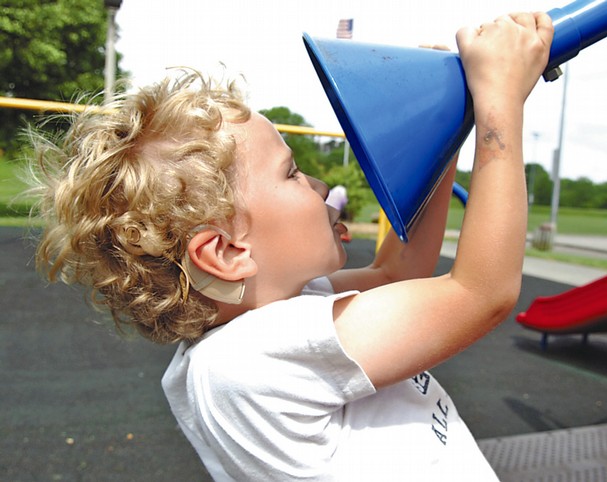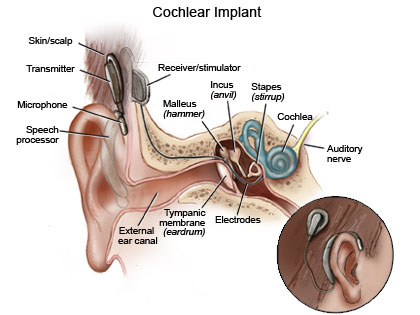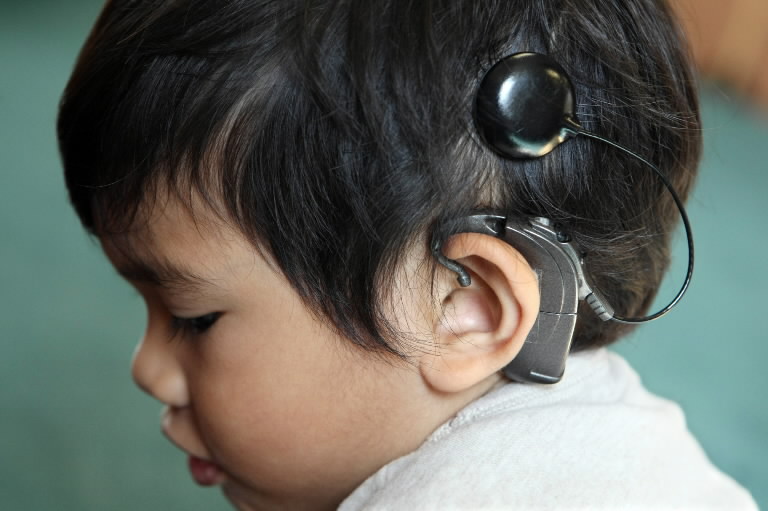Study Shows Timing is Critical for Cochlear Implants
A cochlear implant is a device that bypasses damaged hair cells in the inner ear to stimulate the auditory nerve. This allows a Deaf person to perceive sound. It is not a cure for hearing loss. While a person can receive a cochlear implant at any age, experts have long agreed that if a parent decides to have a child undergo the surgery, the sooner the better. Researchers from the University of Michigan Health System (UMHS) have also found that children who undergo the surgery sooner rather than later demonstrate the most positive benefits.
The researchers published the 2001 study in Otology and Neurotology. They examined test results from 101 children who received a cochlear implant from UMHS when they were between the ages of two and 14. The children all received the same model of cochlear implant. Forty-eight of the children underwent testing for speech-recognition skills upon their seventh birthdays, despite receiving their implants at various ages. The remaining 53 children were of various ages. They were tested three years after receiving their implants. The purpose of splitting the children into these groups was to isolate the age of implantation as a factor in speech-recognition skills.
The speech-recognition skills test consisted of a battery of six exams, which were designed to measure the children’s ability to recognize sentences, words, and sounds. The researchers found that the earlier the children received the cochlear implant, the better they performed on the test. The children also did better when they were tested after receiving the implant three years previously, between their second and fourth birthdays.
The lead researcher in this study, Paul Kileny, Ph.D., noted that the nerve cells in the inner ear perform best when stimulated early and often. This is crucial for forming patterns of activation that lend themselves to the perception of speech. Kileny also pointed out that while people who receive the implant as adults will improve for a number of years, that rate of improvement will ultimately plateau. In contrast, those who receive the implant as children will continue to improve for a much longer time period. The improvement in the perception of speech is critical for the development of speech and language skills, and for the child’s ability to meet language milestones that are on target with his peer group.
The UMHS study is far from the only study to examine the relationship between cochlear implants and age. At the time it was published, it was the largest and most comprehensive study of its kind. Since then, researchers have continued to delve into the issue. A 2010 study was published in the Journal of the American Medical Association. Researchers concluded that children who receive a cochlear implant before they are 18 months of age are able to perceive speech, comprehend music, and speak at a higher level than children who received the implant when they were older.
This conclusion was based on research gathered from 188 children who ranged in age from 6 months to 5 years. Their language development was analyzed for three years after they received an implant. The results were compared to 97 children who did not have hearing loss. The researchers noted that children who received a cochlear implant after their third birthday displayed speech and language “gaps” when compared to their peer groups.





